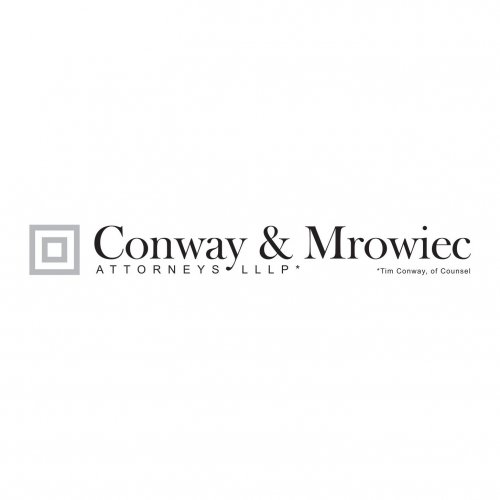Best FDA Law Lawyers in Chicago
Share your needs with us, get contacted by law firms.
Free. Takes 2 min.
List of the best lawyers in Chicago, United States
About FDA Law in Chicago, United States
FDA Law refers to the complex body of federal regulations enforced by the United States Food and Drug Administration (FDA), overseeing the safety, effectiveness, and labeling of foods, drugs, medical devices, cosmetics, and more. In Chicago, as in the rest of the country, FDA regulations interact with both federal and state law, affecting businesses, healthcare providers, manufacturers, and consumers. These laws set standards for product formulation, marketing, clinical trials, and post-market monitoring to ensure public health and safety.
Why You May Need a Lawyer
Navigating FDA Law can be challenging due to the technical and regulatory requirements involved. Common situations where individuals or businesses may require legal help include:
- Launching a new food, drug, cosmetic, or medical device product and needing compliance advice
- Receiving a warning letter, inspection report, or recall notification from the FDA
- Facing enforcement actions due to possible non-compliance with FDA regulations
- Dealing with product labeling or advertising issues
- Responding to FDA requests for clinical trial data or manufacturing changes
- Importing or exporting FDA-regulated products across state or national borders
- Defending against civil or criminal charges related to FDA violations
- Seeking approval for generic drugs (ANDA) or medical devices (510k or PMA)
- Navigating state and local regulations in addition to federal requirements
A lawyer experienced in FDA Law can guide you through these challenges, helping you avoid costly penalties and ensuring your business runs smoothly.
Local Laws Overview
Chicago, Illinois is under the jurisdiction of federal regulations from the FDA but may also be impacted by Illinois state laws and local ordinances:
- The Illinois Department of Public Health (IDPH) enforces state health and safety regulations, often complementing FDA oversight in areas such as food safety, retail sales, and manufacturing environments.
- Chicago has its own Department of Public Health and may have city regulations regarding food handling, restaurant inspections, and product sales locations.
- Illinois law requires specific licensing or registration for some regulated activities, such as pharmacy operation, drug distribution, or cannabis sales, in addition to federal FDA requirements.
- State and local authorities may enforce additional fines or penalties for certain violations, such as those involving public health hazards, misbranding, or failure to obtain proper licenses.
Businesses in Chicago must comply with FDA regulations, state laws, and city ordinances. Legal guidance is essential for understanding this patchwork of requirements.
Frequently Asked Questions
What types of products does the FDA regulate?
The FDA regulates foods, dietary supplements, human and veterinary drugs, vaccines, blood products, medical devices, radiation-emitting products, cosmetics, and tobacco products.
Do I need FDA approval to sell a new product in Chicago?
It depends on the product. Most drugs and high-risk medical devices require FDA approval before marketing. Foods and cosmetics do not generally require approval but must meet specific labeling and safety requirements.
What happens if the FDA finds a violation in my Chicago-based business?
The FDA can issue warning letters, detain products, require recalls, impose fines, or, in serious cases, pursue criminal charges. Local health departments may also act if public safety is at risk.
How can I ensure my product labeling complies with FDA law?
Product labels must include required information such as ingredients, manufacturer details, and approved claims. Legal counsel can review labeling to ensure compliance with FDA and local standards.
What is a 510k submission for medical devices?
A 510k submission is a premarket notification to the FDA, showing that a new device is substantially equivalent to a legally marketed device. Most lower-risk medical devices require this before being sold.
Is it possible to challenge an FDA decision?
Yes, businesses and individuals can challenge FDA decisions through administrative appeals, citizen petitions, or lawsuits, often with assistance from experienced FDA lawyers.
Are dietary supplements regulated differently from drugs?
Yes, dietary supplements do not require FDA approval before marketing, but they must not make unapproved health claims, and must be manufactured under good practices. The FDA can pull unsafe supplements from the market.
Can I import FDA-regulated products into Chicago?
Yes, but imported products must comply with all FDA regulations and may be subject to additional inspections and documentation requirements at U.S. ports of entry.
How do Illinois laws interact with federal FDA regulations?
Illinois and Chicago enforce state and local public health laws, which often supplement but do not override federal FDA regulations. Compliance with all levels of law is required.
When should I consult with an FDA lawyer in Chicago?
Consult a lawyer when developing or marketing a regulated product, facing an FDA investigation, planning clinical trials, or receiving a notice from the FDA or local regulators.
Additional Resources
For more information or guidance regarding FDA Law in Chicago, the following resources may be helpful:
- United States Food and Drug Administration (FDA) - Main regulatory authority for food, drug, and medical device law
- Illinois Department of Public Health (IDPH) - State agency for health and safety regulations
- Chicago Department of Public Health - Oversees local ordinances on food and product safety
- Illinois State Bar Association - Can help you find a qualified FDA or health law attorney
- Legal aid organizations and local law schools - Some may offer clinics or free consultations regarding FDA matters
Next Steps
If you need legal assistance with FDA Law in Chicago, you should begin by gathering all relevant documentation, including FDA communications, product formulations, labels, and business licenses. Then:
- Research and contact an attorney with experience in FDA Law and local Chicago regulations
- Prepare a list of questions and specific concerns for your legal consultation
- Stay informed by reviewing updates on regulations through the FDA and local health departments
- If immediate action is required, such as responding to an FDA warning letter, prioritize seeking legal advice to avoid missing critical deadlines
Working with a knowledgeable FDA lawyer can protect your business, reduce legal risks, and ensure continued compliance as regulations evolve.
Lawzana helps you find the best lawyers and law firms in Chicago through a curated and pre-screened list of qualified legal professionals. Our platform offers rankings and detailed profiles of attorneys and law firms, allowing you to compare based on practice areas, including FDA Law, experience, and client feedback.
Each profile includes a description of the firm's areas of practice, client reviews, team members and partners, year of establishment, spoken languages, office locations, contact information, social media presence, and any published articles or resources. Most firms on our platform speak English and are experienced in both local and international legal matters.
Get a quote from top-rated law firms in Chicago, United States — quickly, securely, and without unnecessary hassle.
Disclaimer:
The information provided on this page is for general informational purposes only and does not constitute legal advice. While we strive to ensure the accuracy and relevance of the content, legal information may change over time, and interpretations of the law can vary. You should always consult with a qualified legal professional for advice specific to your situation.
We disclaim all liability for actions taken or not taken based on the content of this page. If you believe any information is incorrect or outdated, please contact us, and we will review and update it where appropriate.

















